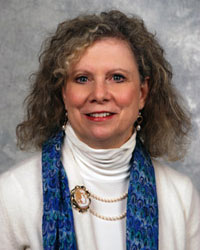Headlines
As reported by OurParents.com, April 15, 2010.
How to Make a Home More Environmentally Friendly for Seniors
By James Zipadelli

Paula Schenck, M.P.H.
If a family member wants to remain at home, there are certain things caregivers should check to make sure the living environment is as comfortable as possible -- especially if your loved one has a respiratory condition.
First, check to see if your family member's home has a carbon monoxide monitor. A fact sheet from the EPA says, "Unintentional CO poisoning is responsible for about 500 deaths and 15,000 trips to the emergency room annually."
The EPA also says that fewer than 1/3 of American homes have CO monitors installed. Because there are people over age 65 who have pre-existing medical conditions, they are at risk.
"Caregivers should make sure that gas heat systems and gas stoves are maintained properly, especially if the older person lives alone," says Paula Schenck, M.P.H., from the Center for Indoor Environments and Health at the University of Connecticut Health Center. "CO is easy to monitor and all homes that use gas should have a working monitor."
Caregivers should also control allergens and respiratory irritants -- especially if their loved one has a pre-existing condition.
"A caregiver should be concerned about moisture in the home," Schenck says. "Leaks (from roof, windows, plumbing) need to be fixed. Temperature and humidity should be controlled. Seeing or smelling fungi/ mold tells us that we have moisture in the environment. Moisture and dampness in the home from leaks and/or humidity and condensation support dust mites and other biological materials. Moisture in indoor environments can affect breathing, especially for those with asthma and other chronic respiratory conditions. The caregiver needs to make sure that the sources of moisture are taken care of so microbes canít thrive."
Even in the most well-controlled environments, mold can still grow -- for example, on your shower curtain, Schenck says. Caregivers should wipe down the shower to control moisture, and have a good exhaust fan and window to make sure moisture dissipates.
"In facilities like nursing homes, you want to make sure that the fan in your momís bathroom room is working," Schenck says. "If mold has grown extensively, you may need to take some additional precautions before cleaning it up. And if someone has symptoms, that person should not be the one cleaning the mold."
Diane Carbo, a registered nurse with 35 years' experience, says good housekeeping is important, too. Visit Carbo's Web site.
"For seniors that remain in their own homes regular cleaning to avoid allergen build up such as dusting, sweeping, regularly cleaning bath tubs and showers, washing bed linens in hot water are important," Carbo says. "The bathrooms and bedrooms are the most important rooms to keep clean to maintain allergen maintenance."
"When you have pets, it is important to limit the rooms the pets have access to if you are concerned about allergens," Carbo adds. "If the seniors are living with the family, stuffed animals should be washed on a regular basis, to prevent allergen build up."
Carbo and Schenck both say that using a high-efficiency particulate air, or HEPA filter to purify the air can be helpful. Schenck urges caution in choosing one because some units emit ozone, which can make the problem worse. Here's an EPA fact sheet on air purifiers.
"Where you locate it in your home is critical," Schenck says. "If you put it on a carpet that has been wet and a source of mold, you might be stirring up some material in the air."
Some people might think an air freshener might help, but it could actually make the problem worse, Schenck says.
"In my experience with indoor environmental assessments, when I see that they are being used Iíll ask the person why," Schenck says. " Typically they are seeking to cover up an odor, often of mold. I donít want mold odor covered up, rather I want to track the source of the odor to help find the source of the moisture that is allowing the mold to grow. Generally emphasizing soap and water for cleaning in the home will limit some chemical exposures in the home."
Schenck adds that in certain situations, such as limiting the spread of a virus or infection, food preparation, or sewage, sanitizers and disinfectants might be a better option.


